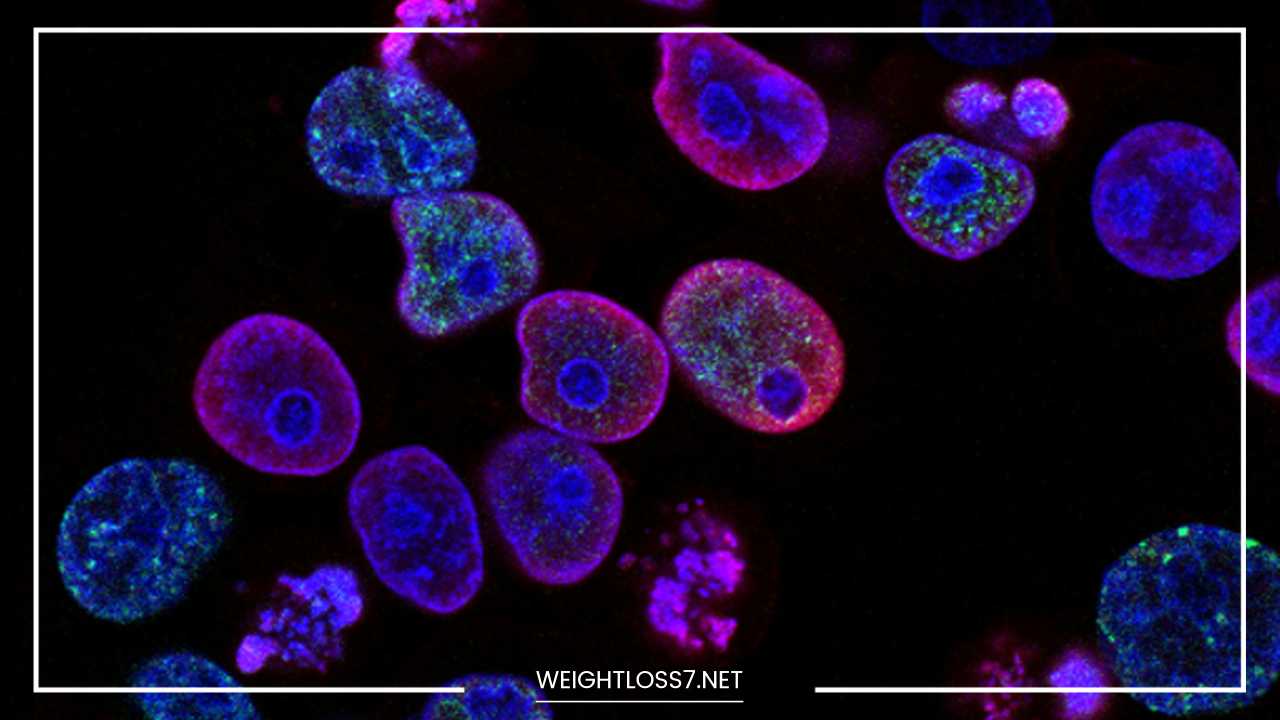Radical Cancer Treatment: A Guide to Aggressive Approaches, Risks, and Hope

Radical Cancer Treatment
Radical Cancer Treatment: A Comprehensive Guide to Aggressive Approaches, Balancing Benefits and Risks, and Embracing Hope
A cancer diagnosis. Two words that can send shivers down anyone’s spine. Suddenly, the world shrinks, and the focus narrows to one crucial question: treatment.
Traditional methods like surgery, chemotherapy, and radiation therapy have a proven track record, but they also carry a heavy burden of side effects. This is where the concept of radical cancer treatment enters the picture.
Delving Deeper: What is Radical Cancer Treatment?
Radical cancer treatment goes beyond the standard approaches. It’s an aggressive strategy with a singular goal: complete eradication of the disease. This often involves a multi-pronged attack:
- Extensive Surgery: Imagine a surgeon meticulously removing a cancerous tumor. But in radical surgery, they go a step further. Healthy tissue surrounding the tumor is also excised, creating a wider margin of safety and minimizing the chance of any lingering cancer cells. This can involve removing entire organs or compromising their function depending on the location of the cancer.
- High-Dose Chemotherapy: Chemotherapy drugs are potent warriors against cancer cells. However, in radical treatment, the dosage is often amplified. This increases the effectiveness of the drugs in killing cancer cells throughout the body, but it also comes with a harsher impact on healthy cells, leading to a higher risk of side effects.
- High-Dose Radiation Therapy: Radiation therapy uses focused beams of radiation to destroy cancer cells in a specific area. In radical treatment, the dosage and duration of radiation therapy are often increased. While this intensifies the attack on cancer cells, it can also damage healthy tissues in the vicinity of the treatment area.
Why Consider Radical Treatment?
Despite the intensity of radical treatment, it can be the most effective course of action in several scenarios:
- Early Detection, Higher Cure Rates: When cancer is caught early and hasn’t spread, radical treatment offers a significantly higher chance of complete cure. The aggressive approach can effectively eliminate the disease before it has a chance to take root and spread.
- Aggressive Cancers Demand a Strong Response: Certain cancers are particularly aggressive and fast-growing. In these cases, a radical approach is necessary to prevent the cancer from rapidly expanding and compromising vital organs. Here, time is of the essence, and a strong initial attack is crucial.
- Limited Alternatives, Hope Lies in Radical Measures: For some cancers, particularly those that are advanced or highly aggressive, radical treatment might be the only option with a curative potential. Even with the associated risks, it can offer a fighting chance when other treatments may not be as effective.
Weighing the Risks: A Double-Edged Sword
The effectiveness of radical treatment comes with a price. The aggressive nature of these therapies can lead to a range of potential side effects:
- Increased Risk of Infection: Extensive surgery and compromised immunity due to high-dose chemotherapy can leave patients more susceptible to infections. This can significantly impact the recovery process and require additional medical interventions.
- Organ Damage: Depending on the location and type of treatment, vital organs can be inadvertently affected. For instance, surgery near the lungs can lead to breathing difficulties, while radiation therapy near the brain can cause cognitive impairment.
- Fatigue: Both chemotherapy and radiation therapy can cause extreme tiredness. This fatigue can persist for weeks or even months after treatment is completed, significantly impacting daily life and well-being.
- Cognitive Impairment: “Chemo brain” is a real phenomenon. It refers to a decline in cognitive function, impacting memory, concentration, and focus. This can be a frustrating side effect for patients and can make it difficult to return to work or normal activities.
While these side effects are significant, it’s important to remember that advancements are being made to mitigate them.
Doctors can prescribe medications to manage nausea and fatigue associated with chemotherapy. Additionally, newer radiation therapy techniques like stereotactic radiosurgery offer more targeted approaches that minimize damage to surrounding healthy tissues.
Beyond the Standard: Embracing New Frontiers in Radical Treatment
The field of oncology is constantly innovating, offering new approaches to radical treatment that are more targeted and potentially less debilitating:
- Immunotherapy: Harnessing the Body’s Own Defense System: This exciting frontier in cancer treatment aims to empower the body’s immune system to recognize and attack cancer cells. This can be done through various methods like checkpoint inhibitors or CAR T-cell therapy, offering the potential for a more targeted and potentially less toxic approach.
- Gene Therapy: Altering the Blueprint of Cancer: Gene therapy holds immense promise for cancer treatment. By altering the genetic makeup of cancer cells, this approach aims to make them more susceptible to destruction by the immune system or chemotherapy drugs. While still in its early stages, gene therapy has the potential to revolutionize radical treatment, offering a more precise and personalized approach.
Precision Medicine: Tailoring Treatment to the Unique Fingerprint of Cancer
Cancer is not a monolithic disease. Different cancers have distinct genetic mutations that drive their growth and spread. Precision medicine, a rapidly evolving field, takes advantage of this knowledge.
By analyzing the specific genetic makeup of a patient’s cancer, doctors can tailor treatment to the unique fingerprint of the disease. This personalized approach can involve:
- Targeted therapies: Drugs designed to specifically target the genetic mutations driving a particular cancer can be incredibly effective with fewer side effects compared to traditional chemotherapy.
- Combining therapies: Precision medicine allows doctors to combine different treatment modalities, like immunotherapy and targeted therapy, for a more synergistic and potentially less radical approach.
Clinical Trials: Pioneering the Future of Radical Treatment
Clinical trials are at the forefront of medical research, and they play a crucial role in testing the efficacy and safety of new, often radical, cancer treatments.
These trials involve patients who volunteer to receive the experimental treatment and are closely monitored for both positive and negative effects. Participating in a clinical trial can offer several advantages:
- Access to Cutting-Edge Therapies: Patients in clinical trials gain access to treatments that might not yet be widely available. This can provide hope for those who have exhausted standard treatment options.
- Contributing to Scientific Advancement: By participating in a clinical trial, patients become active participants in the fight against cancer. Their experience helps researchers evaluate the effectiveness of new treatments and pave the way for future advancements.
- Close Monitoring and Support: Patients in clinical trials are closely monitored by a team of healthcare professionals throughout the trial. This ensures their safety and well-being while providing access to additional support services.
Finding Hope Through Informed Decisions
A cancer diagnosis is a life-altering event. When considering radical treatment, it’s crucial to be fully informed and empowered to make the best decisions for your individual circumstances. Here are some key steps to take:
- Open Communication with Your Doctor: A strong doctor-patient relationship is vital. Ask questions, voice your concerns, and discuss all available treatment options in detail. Understand the potential benefits and risks associated with each approach.
- Second Opinions: Seeking Additional Expertise: Don’t hesitate to seek a second opinion from another qualified oncologist. This can provide valuable insights and ensure you’re exploring all viable treatment avenues.
- Considering Overall Health and Well-Being: Treatment decisions should factor in your age, fitness level, and ability to tolerate side effects. Discuss these aspects with your doctor to determine the most appropriate course of action.
- Knowledge is Power: Arming Yourself with Information: Research and educate yourself about your specific cancer type and the available treatment options. Reputable sources like the National Cancer Institute (https://www.cancer.gov/), the American Cancer Society (https://www.cancer.org/), and patient advocacy groups can be invaluable resources.
The Road to Recovery: Beyond Treatment
The journey following radical cancer treatment requires resilience, patience, and a strong support system. Here are some resources to help navigate the path to recovery:
- Support Groups: Finding Strength in Shared Experiences: Connecting with other cancer survivors can provide invaluable emotional support and practical advice. These groups can offer a safe space to share your experiences, fears, and triumphs.
- Rehabilitation Programs: Regaining Strength and Independence: Depending on the type of treatment, physical therapy, occupational therapy, and speech therapy can be crucial for regaining strength, mobility, and communication skills. These programs play a vital role in promoting a return to daily activities and a sense of normalcy.
- Nutritional Counseling: Fueling Your Body for Healing: Maintaining a healthy, balanced diet is essential during and after cancer treatment. A qualified nutritionist can create a personalized plan to ensure your body receives the nutrients it needs to heal and rebuild.
- Mental Health Support: Addressing the Emotional Toll: Cancer and radical treatment can take a significant emotional toll. Don’t hesitate to seek professional help from a therapist or counselor to manage stress, anxiety, and depression.
Final Word: Embracing Hope in the Face of Challenge
Radical cancer treatment is a powerful tool in the fight against this devastating disease. By understanding the options, weighing the risks and benefits, and actively participating in your treatment plan, you can navigate this challenging journey with hope and a fighting spirit.
Remember, there are incredible advancements happening in the field of oncology, offering new and potentially less radical approaches for the future.
Stay informed, advocate for yourself, and embrace the support system around you. Together, you can fight back against cancer and reclaim your life.
Beyond the Physical: Addressing the Emotional and Psychological Impact
Cancer and its treatment, particularly radical approaches, can have a profound impact on a person’s emotional and psychological well-being. Here are some strategies to cope with the emotional challenges:
- Acknowledging Your Emotions: It’s okay to feel overwhelmed, scared, or angry. Allow yourself to experience these emotions and find healthy ways to express them. Talking to a therapist, counselor, or support group can be immensely helpful.
- Mindfulness and Relaxation Techniques: Practices like meditation, deep breathing exercises, and yoga can help manage stress, anxiety, and improve sleep quality. These techniques can offer a sense of calm and control amidst the uncertainty.
- Maintaining a Sense of Normalcy: As much as possible, try to maintain routines and activities you enjoy. This can provide a sense of normalcy and stability during a time of upheaval.
- Connecting with Loved Ones: Don’t isolate yourself. Lean on your family and friends for emotional support. Sharing your experiences and feelings can be incredibly cathartic.
The Role of Caregivers: Providing Support and Strength
The journey with cancer extends beyond the patient. Caregivers play a vital role in supporting their loved ones throughout treatment and recovery. Here are some tips for caregivers:
- Educate Yourself: Learn about the specific cancer diagnosis and the treatment process. This knowledge will empower you to better support your loved one and answer their questions.
- Communicate Effectively: Open and honest communication is key. Listen attentively to your loved one’s concerns and needs, and offer support and encouragement.
- Prioritize Self-Care: Taking care of yourself is essential. Make time for activities that help you manage stress and maintain your own well-being. Only then can you effectively care for your loved one.
- Seek Support for Yourself: Don’t hesitate to seek support groups or counseling for caregivers. Sharing your experiences and challenges can be incredibly helpful in managing the emotional burden.
A Message of Hope
Cancer is a formidable opponent, but you are not alone. With advancements in medical research, new and potentially less radical treatment options are emerging all the time.
By understanding the different radical approaches, their potential benefits and risks, and actively participating in your treatment decisions, you can chart a course towards healing and well-being.
Embrace the support system around you, take care of your mental and emotional health, and never lose sight of hope.
Remember, with courage, resilience, and the unwavering support of your loved ones, you can overcome this challenge and reclaim your life.
Additional Resources:
- The National Cancer Institute: https://www.cancer.gov/
- The American Cancer Society: https://www.cancer.org/
- CancerCare: https://www.cancercare.org/
- The National Alliance on Mental Illness (NAMI): https://www.nami.org/
- The American Psychological Association (APA): https://www.apa.org/
Disclaimer: This blog post is intended for informational purposes only and should not be construed as medical advice. Always consult with a qualified healthcare professional for personalized guidance regarding your specific situation and treatment options.

















